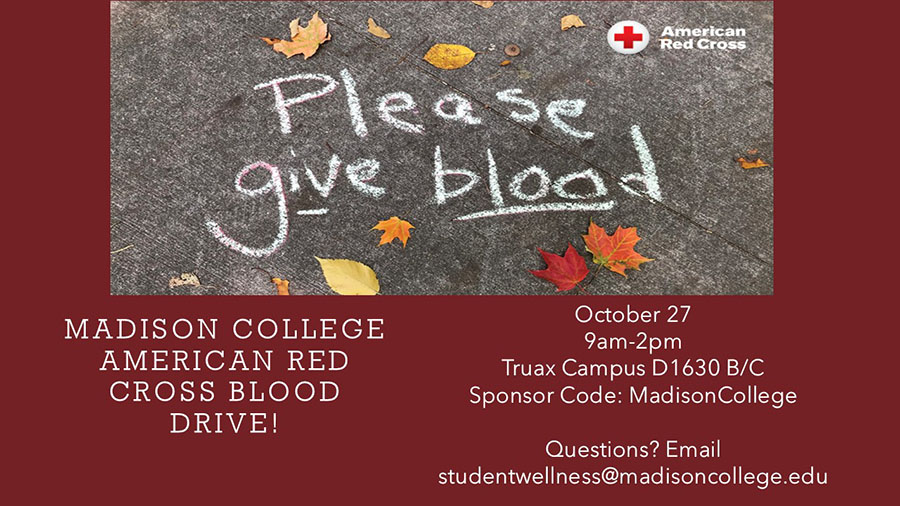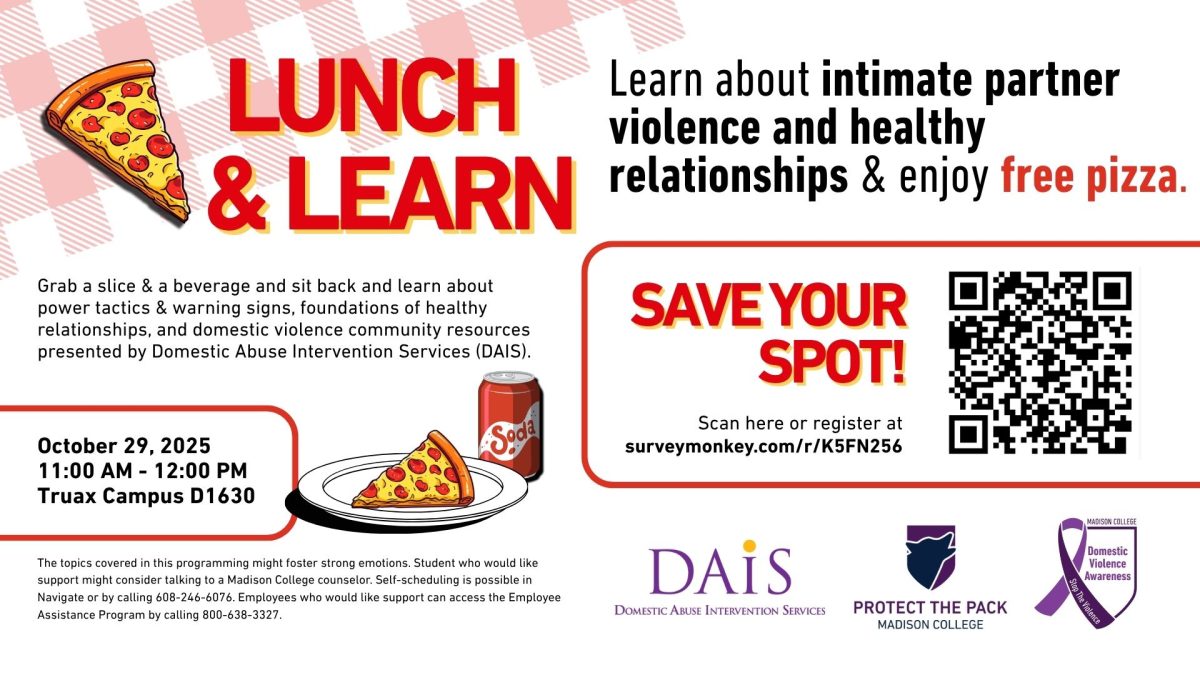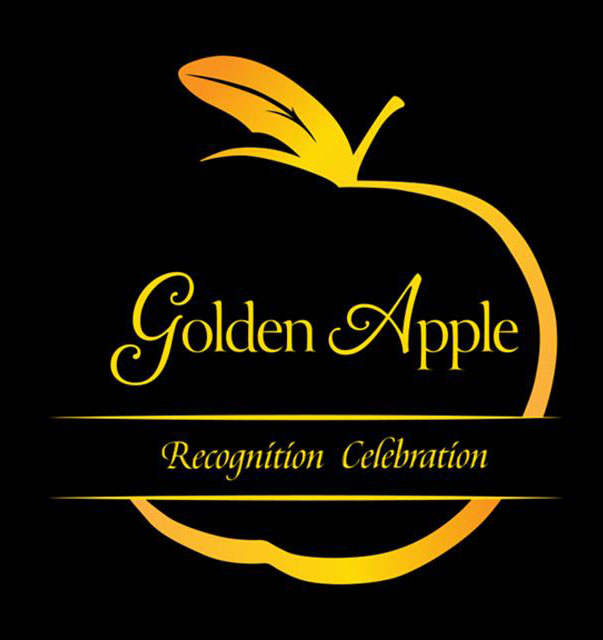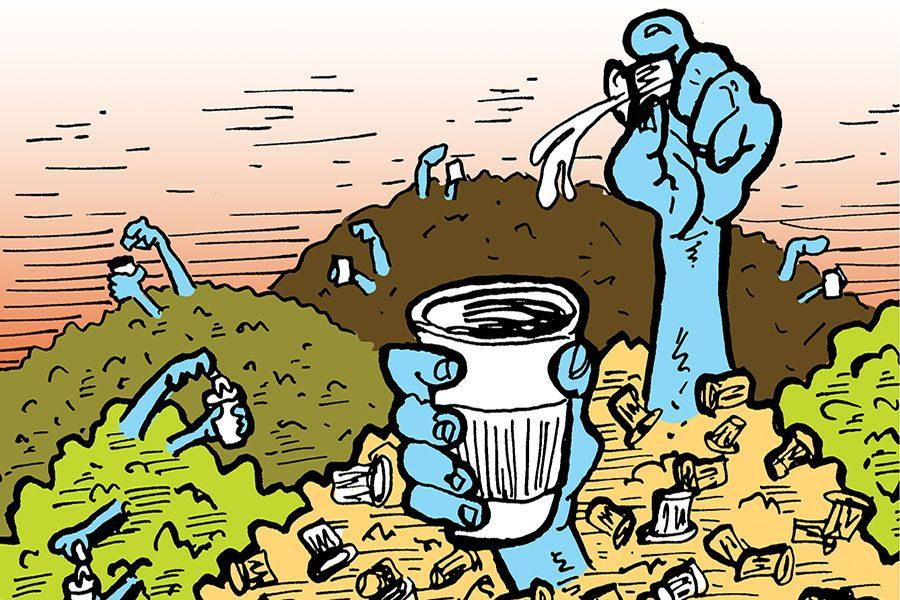Avoiding a disposable lifestyle
If you live in Madison, you can recycle almost anything
Illustration by Michael Edwards
Individual packaged items, like creamers, create way too much waste.
May 3, 2016
Sustainable Materials Management, a.k.a. recycling, has been commonplace for decades, and in the U.S., found its beginnings in turn of the century in New York City. Back then people were recycling paper, metals, carpets and even horsehair.
Fast-forward one century, and we’ve added a lot to the mix.
Currently, there are seven kinds of plastics we use to contain our creamers, beverages and groceries and which we use to make eating utensils and winter-time window insulation.
A lot of that ends up in landfills because people don’t know whether or not what they’re tossing is trash or a recyclable.
Most Madisonians might be surprised to find that all the plastic is recyclable in our city.
All plastic products with numbers from 1-7 inside that little Mobius Loop, even those Styrofoam cups you’ve been told must be thrown in the trash, are recyclable.
This may not be true for all cities, but as recycling center sorting and processing technology becomes more prolific, we can expect to see a great decrease in the amount of recyclable materials ending up in our landfills, waterways and oceans, which is dangerous to the environment and waste of money.
Or will we?
According to the Environmental Protection Agency, an estimated 75 percent of what we in the United States throw in the trash is recyclable, yet we only recycle about 25 percent of it.
This, to me, is crazy. How can we be so uneducated about what we’re throwing away? Honestly, if it’s not food and soaked in food grease, sauce, etc., then I throw it in the recycling just to be safe. I’ve seen enough videos on YouTube about how recycling sorting machines work to know that they’re sophisticated enough to tell the difference between what’s trash and recyclable.
The city of Madison also recycles plastic bags. What!? I have around a million stashed beneath my sink because I’ve always assumed that they were destined to fly out of the landfill and clog up some poor animal’s intestinal tract.
Also, recycling plastic takes 88 percent less energy than it does to produce it using raw materials. If we recycled the other 75 percent of plastics we throw away, the United States would save 1 billion gallons of oil.
Lets stop using ignorance as an excuse to not recycle. Other cities and towns may not be as lucky as we are to have such a great recycling program, so we should set an example and make sure we’re learning and doing all we can to ensure that what we dispose has the maximum potential to be recycled.
The city’s recycling guidelines can be found at www.cityofmadison.com/streets/recycling/guidelines.cfm.
They just added metal bottle caps and cardboard sided metal containers.
































